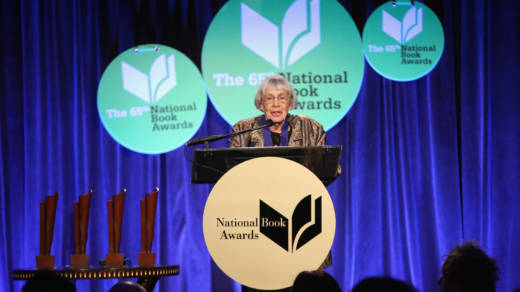Ursula K. Le Guin, a prolific novelist best known for the Earthsea series and The Left Hand of Darkness, died Monday at the age of 88 in Portland, Ore. Across more than 20 novels and scores of short stories, Le Guin crafted fantastic worlds to grapple with profoundly difficult questions here on Earth, from class divisions to feminist theory.
Her agent Ginger Clark confirmed Le Guin’s death to NPR.
Across the decadeslong span of her career — from her first short story submission at the age of 11, to her tireless work well into her 80s — Le Guin stood as a towering figure in science fiction and fantasy. Indeed, she completed a triple crown of the genres’ biggest prizes, earning the Hugo, Nebula and Locus awards several times over.
Still, while Le Guin deployed alien planets and impossible societies in her novels, fellow Hugo winner Mary Robinette Kowal told NPR’s Petra Mayer that Le Guin’s work could not be confined to a simple label found atop bookstore shelves.
“Throughout her life she embraced new forms of technology, she was constantly pushing boundaries and barriers, that is inspiring to me,” Kowal said.

9(MDAxOTAwOTE4MDEyMTkxMDAzNjczZDljZA004))

